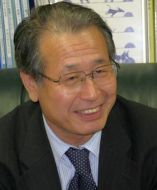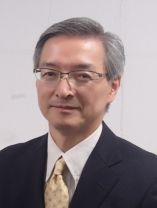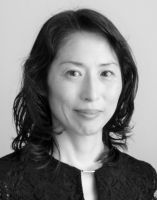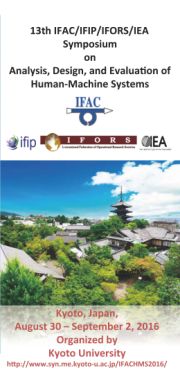Special Workshop
Lessons Concerning Resilience of Socio-Technical Systems Learned from Experiences During the Great East Japan Earthquake
Wednesday, August 31, 2016, 16:30-18:00
| Speaker: | Prof. Masaharu Kitamura | Research Institute for Technology Management Strategy / Emeritus Professor at Tohoku University |
|---|---|---|
| Mr. Atsufumi Yoshizawa | Former Unit 5&6 Superintendent, Fukushima Daiichi Nuclear Power Station Tokyo Electric Power Company | |
| Ms. Kyoko Oba | Japan Atomic Energy Agency | |
| Facilitator: | Prof. Tetsuo Sawaragi | Kyoto University |
Workshop Outline
The Great East Japan Earthquake of March 11, 2011 and the nuclear disaster at Fukushima Daiichi Nuclear Power Station (NPS) clearly demonstrated the brittleness of many socio-technical systems in Japan. As a result, there were innumerable accidents and disasters in various industries and regions. Accident investigations were launched to identify failures and inefficient handling responsible for the accidents and disasters, as it is considered that similar accidents or disasters can be prevented by removing the causes of failures and inefficient handling. However, it is not clear whether such a find-and-fix approach is sufficient. This Workshop will pursue answers to this question.
Many socio-technical systems demonstrated high resilience in the sense that they responded adaptively and maintained their functionality during the earthquake and tsunami, whereas other socio-technical systems were unable to maintain 100% functionality. Yet they demonstrated resilience by successfully avoiding fatal problems and serious damage, and in restoring their functionality after a long struggle. Three speakers will give presentations at this workshop, describing and characterizing cases in which certain socio-technical systems behaved resiliently during and after the earthquake and tsunami.
In the first speech, Atsufumi Yoshizawa, one of the “Fukushima Fifty” who fought at the Fukushima Daiichi NPS to contain the accident, will reflect on their recovery activities and consequent outcomes, and will evaluate the activities in the light of a methodology of resilience engineering for pursuing safety. In the second speech, Kyoko Oba, a faculty member of Japan Atomic Energy Agency (JAEA), will report on the Tokai No.2 Power Station of Japan Atomic Power Company, which resiliently avoided a serious accident in spite of significant damages caused by the tsunami. She will explain that excellent resilience has been achieved through effective collaboration among multiple actors representing different social organizations. In the last speech, Masaharu Kitamura, professor emeritus of Tohoku University, will take a broader look at non-nuclear socio-technical systems that demonstrated highly resilient behavior during and after the earthquake and tsunami. The three speeches exemplify that valuable lessons, not available from the find-and-fix approach, can be learned by reviewing the cases in which organizations behaved resiliently during and after the major external attack.
Following the three speeches, Professor Tetsuo Sawaragi, Chair of the National Organizing Committee (NOC) and Co-Chair of the International Program Committee (IPC) of this Symposium, will facilitate discussions to derive lessons concerning the resilience of socio-technical systems.
List of Speeches/Presentations
- A. Yoshizawa et al.; Lessons Learned from Good Practices During the Accident at Fukushima Daiichi Nuclear Power Station in Light of Resilience Engineering
- K. Oba et al.; Socially Constructed Resilience by Multiple Organizations- The Case of Tokai No2 Power Station-
- M. Kitamura; Supplementary Remarks on Lessons Learned from the Great East Japan Earthquake
Biography of Speakers
Prof. Masaharu Kitamura

Research Institute for Technology Management Strategy
Emeritus Professor at Tohoku University
Masaharu Kitamura is President of Research Institute for Technology Management Strategy which he founded in 2012. He served as a faculty member of Tohoku University, Department of Nuclear Engineering for 36 years and now he is Emeritus Professor at Tohoku University. Also, he had served as a visiting research associate at Nuclear Engineering Department of the University of Tennessee and at Oak Ridge National Laboratory from 1978 to 1980. His professional areas include instrumentation and control of nuclear power plants, neural network and Fuzzy computing, human factors, risk assessment and management, organizational safety management, and public communication on science and technology. His recent research efforts are focused on application of resilience engineering for safety enhancement of nuclear and other industries.
Mr. Atsufumi Yoshizawa

Former Unit 5&6 Superintendent
Fukushima Daiichi Nuclear Power Station
Tokyo Electric Power Company
Atsufumi Yoshizawa earned his B.S. in Mechanical Engineer and M.S. in Nuclear Engineer from Tokyo Institute of Technology. He has worked at Tokyo Electric Power Company as a nuclear engineer since 1983. In his background, he engaged mainly in the area of nuclear fuel and safety at each nuclear power stations, Fukushima Daiichi, Fukushima Daini and Kashiwazaki-Kariwa, and relevant departments in Head Office. He also worked at Rokkasyo Reprocessing Plant of Japan Nuclear Fuel Limited. He studied nuclear political science at Harvard University as Associate of the Program on U.S.-Japan Relations in 1995-96. He has a special experience as the leader of Emergency Responding Team on site during Fukushima Daiichi Accident at 2011. Unit 5 & 6 cold shutdowns were successfully achieved by his leadership with 10 months stay in seismic isolation building. He is trying hard to systematize and convey his experiences at the devastated site by utilizing resilience engineering, and wants to enhance safety of socio-technical systems.
He has governmental qualifications of Licensed Nuclear Supervisor and First Class Radiation Protection Supervisor, and received American Nuclear Society Award in 1991.
Ms. Kyoko Oba

Assistant Principal Engineer
Planning and Co-ordination Office
Sector of Nuclear Science Research
Japan Atomic Energy Agency
Current employment as of Apr. 2015
During her college days, she was involved in management information, environment policy, sociology, and nuclear engineering.
While she was studying issues regarding connecting nuclear technology and society, she was interested in what an expert should be like. Since then, she has gained expertise in the engineering ethics in general engineering while specializing in the nuclear field.
In the Kanazawa Institute of Technology(2002-2012), and the University of Tokyo(2005-2008/concurrent post), her study established an engineering ethics education program for students in the engineering field (young engineers) and engineers working in various companies, prepared related text books and an evaluation method(two books were co-authored).
After the Fukushima accident, as a researcher of nuclear engineering expert and a mother of young children, she has worked to actively transmit information and provide lectures regarding the radioactive effects on human body due to the accident. In addition, she has carried out research since 2014 how to enhance social resilience, based on the actual experiences of collaborative researchers who responded to the Fukushima accident. Her efforts are focused on the field actions which are effective to minimize damages of accidents and their causal factors by utilizing resilience engineering.

